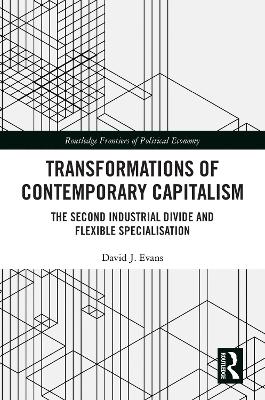In recent decades, there has been many attempts to describe, explore, and explain the new ‘post-modern’ capitalism of the twenty-first century. In this context, this book looks at one of the most exciting strands of this research in the late twentieth century: the flexible specialisation research programme (FSRP).
Drawing on the history of ideas, discourse, and literature on capitalism of the last four decades, this book shows that although ‘flexible specialisation’ anticipated some of the ways in which capitalism was being transformed in the late twentieth century, they underestimated and failed to anticipate the forms of ‘creative destruction’ and corporate digital control which were becoming embedded in the global capitalist accumulation dynamic itself. The sudden disappearance of the Soviet Union and the ‘end of history’ failed to open up the pathway for new forms of modern social democracy but gave rise instead to the new digital Behemoths. Today, the classical tendencies of capitalism as anticipated by Marx are all too present and, despite talk of ‘post-capitalism’ and ‘digital/techno-feudalism’, the landscape of monopolyfinance capital has consolidated itself. The book counterposes the FSRP with the various Marxist interpretations of the capitalist transition, together with the wider social and economic theories that emerged in the first decades for the twenty-first century around, for example, the ‘great acceleration’, de-growth, and post-growth.
This book will be of interest to all readers concerned with heterodox political economy, critical social theory, intellectual history, and, above all, the prospects for social transformation leading to social justice and an ‘egalitarian enlightenment’.
- ISBN13 9781000967081
- Publish Date 2 October 2023
- Publish Status Active
- Publish Country GB
- Publisher Taylor & Francis Ltd
- Imprint Routledge
- Format eBook
- Pages 306
- Language English
